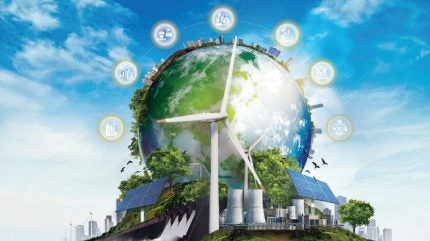
A lack of adequate investment in power transmission infrastructure is hampering the energy transition across developing nations in Asia and the Pacific, according to a recent report from the Asian Development Bank (ADB).
Titled ‘Energy Transition Readiness Assessment for Developing Asia and the Pacific’, the report was conducted in collaboration with the World Economic Forum (WEF).
The report uses a new readiness framework based on the WEF’s Energy Transition Index. It is ADB’s first assessment of regional capacity to transform energy systems.
The report stresses the need for urgent expansion and modernisation of grid infrastructure to meet rising energy demand and to integrate renewable energy sources more effectively.
The analysis shows that the region remains a key driver in the global move towards cleaner energy.
Between 2013 and 2023, clean energy investment in developing Asia increased by over 900%, reaching $729.4bn. This figure represents approximately 45% of worldwide clean energy investment in that period.

US Tariffs are shifting - will you react or anticipate?
Don’t let policy changes catch you off guard. Stay proactive with real-time data and expert analysis.
By GlobalDataWhile the People’s Republic of China contributed the largest share, India and seven additional countries saw renewables account for more than 75% of new energy capacity in 2022, the report says.
China leads in most categories measured by the report, but improvements in policy and regulation have also been noted in Georgia, Malaysia, and Thailand.
Bangladesh, India, and Indonesia have collectively connected more than a billion people to electricity since 2010.
The report also stresses the importance of enhancing both domestic energy networks and cross-border connectivity.
Greater regional integration in Central West Asia, Southeast Asia, and South Asia could improve energy affordability and boost economic efficiency.
These themes will be central to discussions at the upcoming Asia Clean Energy Forum, hosted by the ADB in June.
Topics will include regional power trading and methods for meeting the rising energy needs of cities, industries, and transport systems.
The forum will focus on addressing the infrastructure challenges posed by rapid urban and industrial expansion across the region, the bank said.
ADB energy sector’s senior director Priyantha Wijayatunga said: “The expansion of digitalised grid infrastructure is essential to integrate low-carbon electricity seamlessly into national power generation and transmission systems.
“With Asia and the Pacific forecast to generate two-thirds of global energy growth by 2040, meeting this daunting power supply gap will require multidimensional efforts including strong policies, innovative technologies, and long-term financing.”


